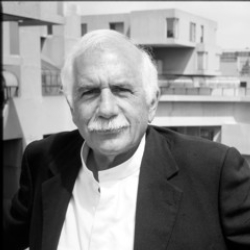Daniel Kahneman Quotations
Daniel Kahneman Quotes about:
-
-
-
-
-
-
-
-
-
-
-
-
-
-
-
-
Compare Quotes
When people evaluate their life, they compare themselves to a standard of what a successful life is, and it turns out that standard tends to be universal: People in Togo and Denmark have the same idea of what a good life is, and a lot of that has to do with money and material prosperity.
-
-
-
First Impression Quotes
If people are failing, they look inept. If people are succeeding, they look strong and good and competent. That's the 'halo effect.' Your first impression of a thing sets up your subsequent beliefs. If the company looks inept to you, you may assume everything else they do is inept.
-
-
-
-
-
-
-
-
Somewhere Else Quotes
You know, the standard state for people is 'mildly pleasant.' Negative emotions are quite rare, and extremely positive emotions are rare. But people are mildly pleased most of the time, they're mildly tired a lot of the time, and they wish they were somewhere else a substantial part of the time - but mostly they're mildly pleased.
-
-
-
Believe Quotes
Suppose you like someone very much. Then, by a familiar halo effect, you will also be prone to believe many good things about that person - you will be biased in their favor. Most of us like ourselves very much, and that suffices to explain self-assessments that are biased in a particular direction.
-
-
-
-
-
-
-
-
-
-
-
-
-
-
-
-
-
-
-
-
-
-
-
Hurt Quotes
The experiencing self lives in the moment; it is the one that answers the question, 'Does it hurt?' or 'What were you thinking about just now?' The remembering self is the one that answers questions about the overall evaluation of episodes or periods of one's life, such as a stay in the hospital or the years since one left college.
-
-
-
-
-
-
-
-
-
-
-
-
-
-
-
-
-
-
-
-
-
-
-
-
-
-
-
-
-
-
-
-
-
-
-
-
-
-
-
-
-
-
-
-
-
Littles Quotes
Doubting what you see is a very odd experience. And doubting what you remember is a little less odd than doubting what you see. But it's also a pretty odd experience, because some memories come with a very compelling sense of truth about them, and that happens to be the case even for memories that are not true.
-
-














